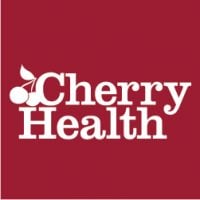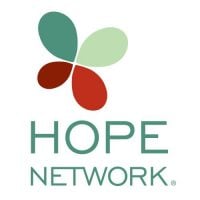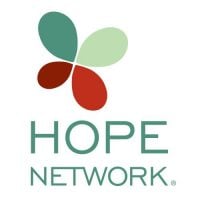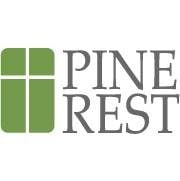A Task Force Against Chemicals
Drug Rehab Center in Grand Rapids, Michigan
- Substance Abuse
- Opioid Addiction
- Drug Addiction
- Alcoholism
A non-profit facility in Grand Rapids, Michigan called T-FAC provides personalized care through evidence-based medical treatments, counseling, relapse prevention, aftercare programs, and education to those struggling with substance abuse and addiction, as well as support to their families and the community.
Multiple patients have reported A Task Force Against Chemicals as permanently closed.
Research other rehabs in Grand Rapids, Michigan, or get help finding an open facility.
Our experts will find you an alternative facility.
(888) 674-0062 24/7 Free, Confidential, Expert HotlineAbout A Task Force Against Chemicals in Michigan
A Task Force Against Chemicals (T-FAC) is a non-profit facility located in Grand Rapids, Michigan. They provide extensive services to help those struggling with substance abuse and addiction. The facility offers a variety of treatment options from detoxification to therapy and support groups. T-FAC team is composed of dedicated professionals with years of experience helping individuals and families with their needs and unique situations.
At T-FAC, patients are provided with personalized care tailored to their individual needs. Their approach includes evidence-based medical treatments, therapeutic counseling, relapse prevention, and an intensive aftercare program to help individuals maintain long-term sobriety. They also offer educational resources and provide support to the family of the patient. In addition, they provide education to the community on how to identify substance abuse and intervene to minimize the impact of addiction.
T-FAC is licensed by the Michigan Department of Health and Human Services and is a member of the American Society of Addiction Medicine. They are currently working in conjunction with the Grand Rapids Police Department to develop a cooperative effort to reduce substance abuse in the area. They have also received multiple awards for their efforts in helping the community.
Genders
Ages
Modality
Additional
Conditions and Issues Treated
A combination of treatments is often needed to treat drug abuse. Some addictions can be treated with counseling and support groups. In other cases, drug abuse can lead to a medical problem and require medical treatment. Treatment for drug addiction typically combines counseling and psychotherapy with medication and behavioral therapies.
A combination of treatments is often needed to treat drug abuse issues effectively. In the case of drug abuse, there is no easy answer or one-size-fits-all cure.
Opioid addiction has become a significant health problem in the United States. In 2015, there were 91 opioid overdose-related deaths per day, with a substantial increase in mortality rate in 2014.
When opioid addiction has reached a point where a person’s life becomes unmanageable, treatment options are available to help them get sober. Treatment that includes medical care with medications and counseling can help a user transition into sobriety.
Levels of Care Offered
This center offers a variety of custom treatment tailored to individual recovery. Currently available are Drug Rehab, Outpatient, with additional therapies available as listed below.
Outpatient treatment is often used for drug addicts in drug rehab. Outpatient treatment consists of counseling and therapy sessions. This form of treatment is also called ‘day-treatment’. The outpatient treatment process begins with the addict’s initial detox period, lasting about ten days.
Outpatient treatment is used for those who are at moderate risk for ‘slipping back’ into the addiction, for those who:
- Are not currently experiencing any side effects from withdrawal and can handle social pressure
- Can handle stressors that might trigger relapse
- Have a stable living environment or have moved out of their previous environment, which was not conducive to being sober
- Have a support system that allows them to go to a facility a few times a week while still keeping their current responsibilities
- Have no legal obligations, being either on parole or probation, that require them to seek treatment at a mandatory facility
- Are not currently experiencing any side effects from withdrawal and can handle social pressure
- Have a stable living environment or have moved out of their previous environment, which was not conducive to being sober
Therapies & Programs
Because no single treatment is effective for all addicts, the goal of treatment and therapy should be to figure out what works best for each individual. Tolerance and withdrawal levels differ from person to person, affecting the treatment intensity required. Addiction treatment should aim to help addicts develop healthy coping mechanisms for dealing with their addiction and its underlying causes.
Group therapy can help build a stronger support system and give addicts in Grand Rapids, MI insight into their addiction that they gain through shared conversations. Group therapy occurs in a controlled group environment, exclusive of one on one meetings. This makes it safer for patients to feel comfortable sharing the struggles they’re going through and gaining perspective.
Payment Options Accepted
For specific insurance or payment methods please contact us.
Additional Details
Specifics, location, and helpful extra information.
Grand Rapids, Michigan 49506 Phone Number(616) 458-5080 Meta DetailsUpdated November 25, 2023
Staff Verified
A Task Force Against Chemicals Patient Reviews
There are no reviews yet. Be the first one to write one.
Grand Rapids, Michigan Addiction Information
Michigan has the second-highest rate of drug and alcohol abuse in the nation. Heroin is linked to more than 50% of the state's hepatitis C cases. Marijuana is the drug most often associated with crimes in Michigan, followed by methamphetamines. Opioids alone are responsible for almost 20% of all drug overdose deaths in Michigan.
In 2012, there were 97 drug-related deaths in Grand Rapids, Michigan. There are 9,518 hospitalizations due to drug abuse that same year. The most common drugs of abuse are heroin, marijuana, and prescription drugs. There are many different types of drug addiction, and each one requires a specific approach to treatment. The goal of treatment is to help the individual overcome their addiction and learn how to live a sober life.
Treatment in Nearby Cities
- Big Rapids, MI (51.6 mi.)
- Ludington, MI (79.9 mi.)
- Iron River, MI (262.3 mi.)
- Alma, MI (57.3 mi.)
- Bangor, MI (50.9 mi.)
Centers near A Task Force Against Chemicals
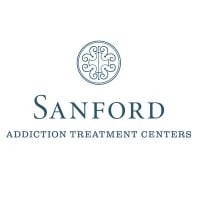
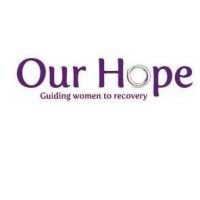


The facility name, logo and brand are the property and registered trademarks of A Task Force Against Chemicals, and are being used for identification and informational purposes only. Use of these names, logos and brands shall not imply endorsement. RehabNow.org is not affiliated with or sponsored by A Task Force Against Chemicals.

